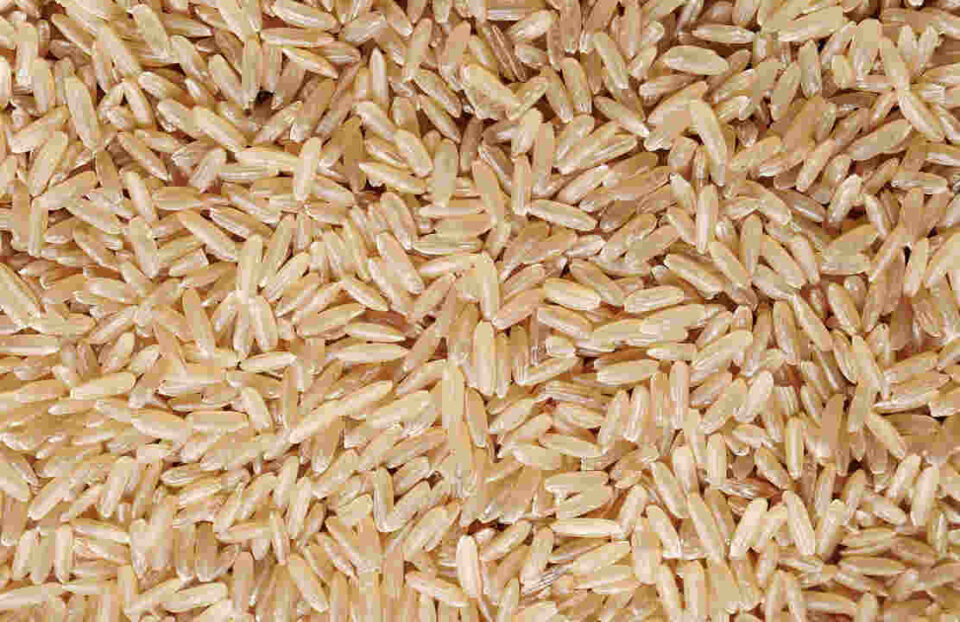In a world driven by dietary choices, the debate between brown rice and white rice remains an evergreen topic. As an Ayurvedic doctor, I’ve witnessed the profound impact that diet has on overall health. Today, I present a comprehensive exploration of the brown rice vs. white rice debate, backed by real-life stories of individuals whose lives were transformed by this simple dietary swap.
Case Study: Naina’s Journey to Wellness
Naina, a 32-year-old fitness enthusiast, struggled with energy slumps and erratic blood sugar levels. Despite a seemingly balanced diet, she was grappling with fluctuations in energy and occasional fatigue. After learning about the benefits of brown rice, Naina decided to make the switch. Within a few weeks, she noticed a significant improvement in her energy levels, better digestion, and stabilized blood sugar. Naina’s journey serves as a testament to the transformative power of brown rice.
The Battle of the Grains: Brown Rice vs. White Rice
1. The Nutritional Showdown
Let’s begin by comparing the nutritional profiles of these two-grain varieties:
Nutrient Brown Rice (1 cup) White Rice (1 cup)
- Calories 215 205
- Fiber 3.5g 0.6g
- Protein 5g 4.2g
- Magnesium 84mg 19mg
- B Vitamins Abundant Limited
- Antioxidants Rich Minimal
2. The Fiber Factor
Brown rice’s edge lies in its high fiber content. Fiber promotes healthy digestion, aids in weight management, and stabilizes blood sugar levels. White rice, being stripped of its bran and germ layers, loses a substantial amount of fiber during processing.
3. Blood Sugar Control
Brown rice has a lower glycemic index (GI) compared to white rice, meaning it leads to slower and more controlled rises in blood sugar levels. This property is particularly beneficial for individuals with diabetes or those aiming to maintain steady energy levels.
4. Nutrient Density
The milling process of white rice results in the loss of essential nutrients, including B vitamins, magnesium, and antioxidants. Brown rice, on the other hand, retains its nutrient density due to minimal processing.
5. Weight Management
The fiber in brown rice contributes to a feeling of fullness, reducing overeating. This property aids in weight management by promoting satiety.
Case Study: Veena’s Triumph over Weight Struggles
Veena, a 40-year-old homemaker, battled weight gain and a persistent craving for unhealthy snacks. Upon making the switch to brown rice, Veena noticed a remarkable change in her eating habits. The increased fiber content in brown rice left her feeling fuller for longer, curbing her urge to snack. Over time, this shift played a pivotal role in her successful weight management journey.
All About Brown Rice vs. White Rice
1: Is brown rice difficult to cook compared to white rice?
Brown rice may take slightly longer to cook, but the added nutrition makes it worth the wait.
2: Can white rice be a part of a healthy diet?
While brown rice offers more nutritional benefits, occasional consumption of white rice in moderation can be incorporated.
3: Is brown rice suitable for gluten-free diets?
Yes, brown rice is naturally gluten-free and suitable for those with gluten sensitivity.
4: Can brown rice help prevent type 2 diabetes?
The lower glycemic index of brown rice can contribute to better blood sugar control and lower diabetes risk.
5: Is white rice devoid of any nutritional value?
While white rice does provide energy, its nutrient content is significantly lower than that of brown rice.
6: Can brown rice aid in digestion?
Yes, the fiber content in brown rice supports healthy digestion and regular bowel movements.
7: Is brown rice a better option for athletes?
Brown rice’s higher fiber and nutrient content can provide sustained energy for athletes.
8: Can brown rice help with cholesterol management?
Yes, the soluble fiber in brown rice can contribute to lower LDL cholesterol levels.
9: Can brown rice be used in various cuisines?
Absolutely, brown rice can be used in a variety of dishes, from stir-fries to salads and more.
10: Is brown rice suitable for all age groups?
Yes, brown rice can be enjoyed by individuals of all ages as part of a balanced diet.
Case Study: Ranjana’s Transformation to Wellness
Ranjana, a 28-year-old office worker, grappled with digestive issues and fluctuating energy levels. Upon switching to brown rice, she noticed a significant improvement in her digestion and sustained energy throughout the day. Ranjana’s story illustrates how a simple dietary change can lead to a profound impact on overall well-being.
Embracing Nutritional Excellence with Brown Rice
As we journey through the nutritional benefits of brown rice, the stories of Naina, Veena, and Ranjana demonstrate the potential for this simple dietary swap to transform lives. The superiority of brown rice, enriched with fiber, nutrients, and antioxidants, places it as an undisputed choice for a healthier lifestyle.
So, why not embrace the power of brown rice? By making this switch, you can experience improved digestion, stabilized blood sugar, better weight management, and enhanced overall vitality. Remember, your dietary choices are the foundation of your health journey, and brown rice offers a golden opportunity to build a stronger, healthier you.

